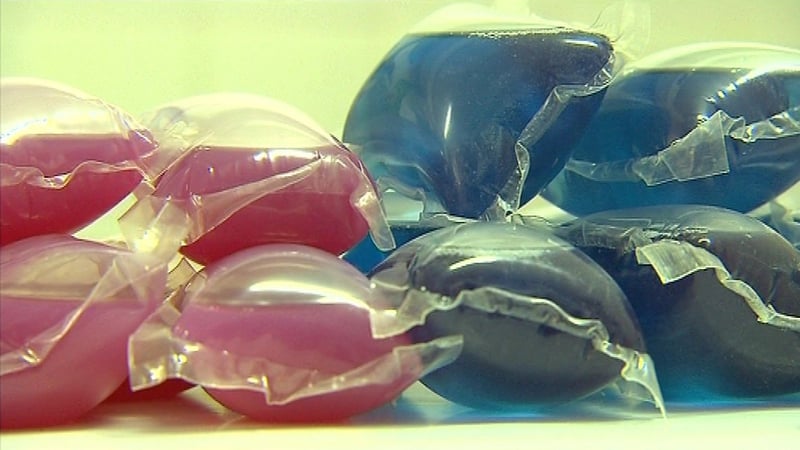The centre has also reported an increase in calls, according to its annual report for 2015.
There were 9,691 inquiries to the centre last year, up 2.4% on the previous year.
Inquiries about liquid detergent capsules increased by 8% and the vast majority of the 344 cases involved children under the age of five years.
In one case, a child required intensive care admission.
While the number of calls from the public has increased, most calls are from GPs and hospital staff.
Over 5,220 calls to the centre last year related to children under ten years.
The report shows that most calls are about drugs, with paracetamol the most common drug involved in poisoning.

It says that 82% of cases are accidental and 15% are intentional overdoses, or a result of recreational abuse.
Most poisonings happen in the home and often involve household cleaning products and chemicals.
Dr. Edel Duggan, Clinical Director at the Centre, has issued an alert to parents about room fresheners, sold as a liquid, in glass containing reeds.
The liquid diffuses up the reeds and a perfume is released from the reeds.
Dr. Duggan said that if ingested, both the carrier and the fragrance oils are potentially toxic, depending on the components.
The centre has also asked parents of young children to keep liquid capsules out of reach and locked away in their original containers.
It says that in most cases, contacting the poisons centre can avoid unnecessary emergency department attendances, reduce health care costs and alleviate parental anxiety.
The National Poisons Information Centre is based at Beaumont Hospital in Dublin.
No comments:
Post a Comment